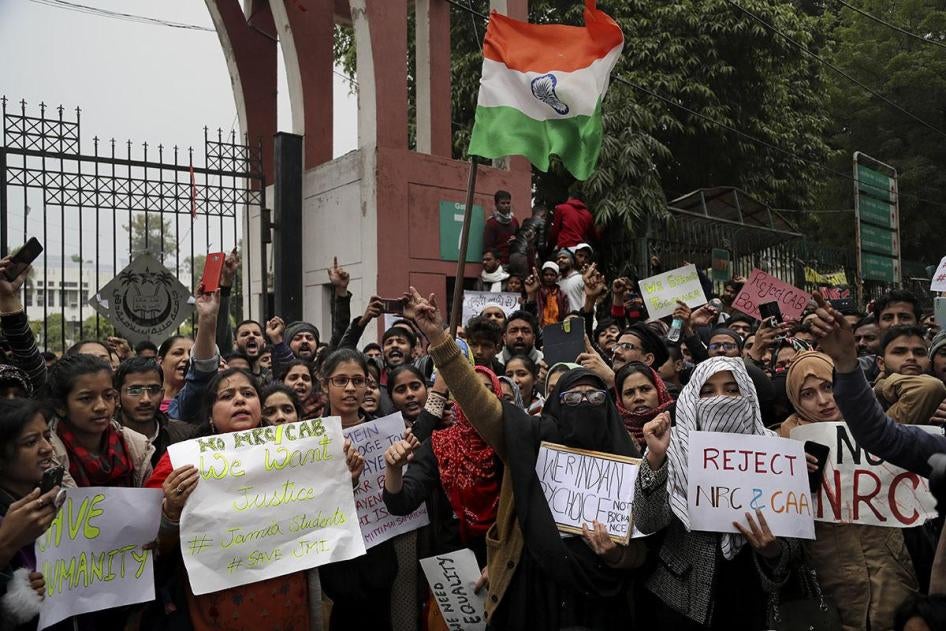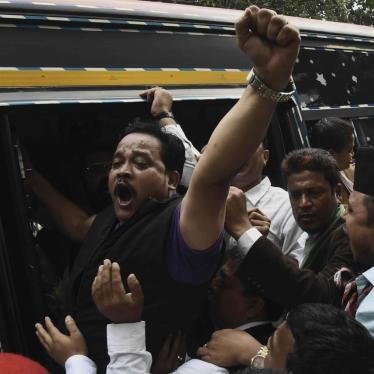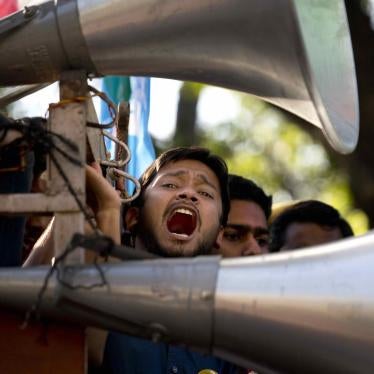Tens of thousands in India are protesting a discriminatory citizenship law embraced by the Bharatiya Janata Party-led government on December 12.
At the forefront of these protests are students from across India’s universities who have gathered to sing songs, wave placards, and shout slogans. While some may have taken part in violence – burning buses and damaging public property – many peaceful protesters have been met with police using brutal and excessive force.
The law offers citizenship to non-Muslims – but not Muslims – fleeing persecution from Muslim-majority Bangladesh, Pakistan, and Afghanistan. It’s an apparent precursor to the government’s planned nationwide citizenship verification process. That process, combined with the law, will, in effect, automatically protect the rights of most faiths, but leave India’s roughly 200 million Muslims with the challenge of proving Indian nationality or becoming stateless.
The protesters say that these policies violate fundamental rights.
Instead of addressing the concerns, offering corrective action, calling for security forces restraint, and ensuring accountability, many government leaders are engaging in discrediting, rebuking, and threatening the protesters.
Prime Minister Narendra Modi has blamed “urban naxals” – a term that he and his supporters earlier coined to disparage human rights activists, journalists, and dissenters. Many of these critics of the government have been jailed, accused of sedition, criminal defamation, or terrorism.
His comment earlier, suggesting that violent protesters could be “identified by their clothes,” prompted several students in Delhi to protest without their shirts, despite the cold weather, to demonstrate that it wasn’t just Muslims who were protesting. On social media, other leaders used the protests to justify the politics of exclusion; one even described some protesters to be “rabidly indoctrinated Islamists,” allegations that can lead to arbitrary arrests and terrorism allegations. A BJP minister said the police should “shoot at sight” anyone who destroys public property.
Home Minister Amit Shah has attempted to quell the protests by saying that Indian Muslims have “nothing to fear.” However, his own statements from the past contradict these claims.
The government would do well to take a leaf out of the protesters’ handbook – those reading aloud the preamble of India’s constitution as a sign of dissent – to recognize that a law that erodes India’s commitment to equality, dignity, and secularism needs to go.










